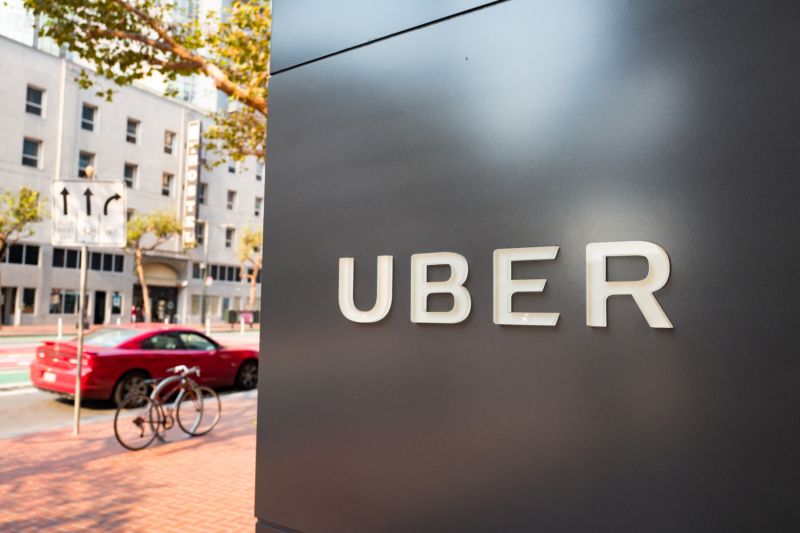Uber Asked Contractor To Allow Video Surveillance In Employee Homes, Bedrooms

For years, employers have used surveillance to keep tabs on their employees on the job. Cameras have watched as workers moved cash in and out of registers, GPS has reported on the movements of employees driving company vehicles, and software has been monitoring people’s work email.
Now, with more work being done remotely, many of those same surveillance tools are entering people’s homes. A marketing company in Minnesota forced employees to install software that would record videos of employee’s screens and even cut their hours if they took a bathroom break that was too long. A New York e-commerce company told employees that they would have to install monitoring software on their personal computers that would log keystrokes and mouse movements—and they’d have to install an app on their phones that would track their movements throughout the workday.
The situation isn’t limited to the US, either. One multinational company appears to be testing the boundaries of what’s an acceptable level of surveillance for remote workers. Teleperformance, one of the world’s largest call center companies, is reportedly requiring some employees to consent to video monitoring in their homes. Employees in Colombia told NBC News that their new contract granted the company the right to use AI-powered cameras to observe and record their workspaces. The contract also requires employees to share biometric data like fingerprints and photos of themselves, and workers have to agree to share data and images that may include children under 18.
Teleperformance employs over 380,000 people in 83 countries to provide call center services for a range of companies, including Amazon, Apple, and Uber. A company spokesperson told NBC that it is “constantly looking for ways to enhance the Teleperformance Colombia experience for both our employees and our customers, with privacy and respect as key factors in everything we do.”
Amazon and Apple said that they did not ask Teleperformance for this extra monitoring, and an Apple spokesperson said the company forbids video monitoring of employees by suppliers. A recent Apple audit reportedly found Teleperformance in compliance with this requirement.
But Uber apparently requested the ability to monitor some workers. Uber said it wouldn’t observe the entire workforce, but the company did not specify which employees would be subject to the new policies. The ride sharing company asked for the monitoring of Teleperformance’s remote employees because call center staff have access to customers credit cards and trip details, an Uber spokesperson told NBC News.
Like many remote workers in the US, Colombians have had to make do with the space they have available to them. In many cases, that’s meant putting their work equipment in otherwise private spaces like their bedrooms. “The contract allows constant monitoring of what we are doing, but also our family,” one worker told NBC. “I think it’s really bad. We don’t work in an office. I work in my bedroom. I don’t want to have a camera in my bedroom.”
Another Teleperformance worker said the only room quiet enough to take customer calls is her bedroom, and at night, during her shifts, it’s also where her husband sleeps. “It’s a violation of my privacy rights, and the rights of my husband and mother-in-law who live with me,” she said.
Boom time for surveillance
Many companies (though not all) were forced to implement remote work a year and a half ago when the pandemic began, and since then, interest in employee monitoring software has boomed. There’s concern that, when the pandemic ends, digital surveillance will follow employees back to the office.
The tools and policies vary in their degrees of invasiveness. Some monitor which apps or websites are open and active, while others log keystrokes or take screenshots to allow managers to snoop on their employees’ desktops. Some will keep tabs on general activity, posting a pop-up window if the person appears to be inactive for too long. If the user doesn’t dismiss it in time, it’ll pause their time clock, effectively docking their pay if their bathroom break stretches too long. Other employers skip specialized apps entirely and ask their employees to stay on video chat all day long.
Employees don’t have many options. They can organize to push back against snooping employers—which many of Teleperformance’s Colombian employees appear to be doing—but many countries, including the US, don’t have laws to prevent companies from surveilling their workers. While the Fourth Amendment in the US may protect against unreasonable search and seizure by the government, it doesn’t apply to private companies in these cases.
“There’s not a constitutional issue here,” Paul Stephens, director of policy and advocacy with Privacy Rights Clearinghouse, told NPR last year. “There aren’t a whole lot of legal protections for employees who are being monitored.”
READ MORE HERE
